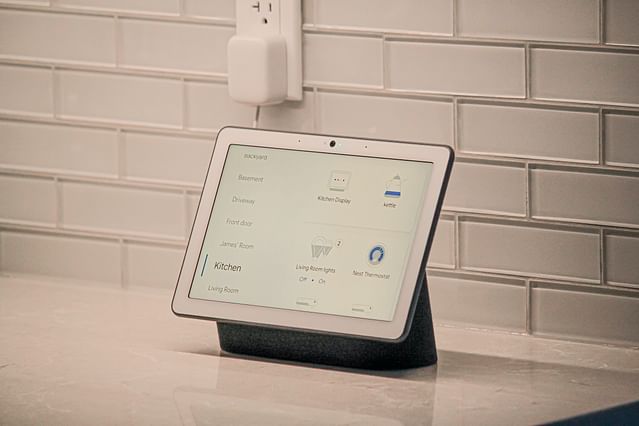
Smart Home Automation for Aging in Place: Creating a Safe and Comfortable Home
As we age, our homes may no longer be the safe havens they once were. The risk of accidents and falls increases with age, and medical emergencies can become more common. But with smart home automation solutions, we can create safe and comfortable living environments that allow seniors to age in place with peace of mind and independence.
Here are some smart home automation solutions that can help seniors age in place safely and comfortably:
1. Fall Detection Sensors
Falls are a major concern for seniors, and they can result in serious injuries, hospitalization, or even death. Fall detection sensors can help seniors and their families feel more secure by alerting emergency services in the event of a fall, even if the senior is unable to call for help themselves. These sensors can be placed in key areas such as the bathroom, bedroom, and living room, and can detect falls using accelerometers or other motion sensors. Some fall detection devices come with a wearable pendant or bracelet that can be worn at all times to ensure that help is always within reach.
2. Remote Monitoring Devices
Remote monitoring devices are another important component of a smart home automation setup for seniors. These devices can keep tabs on medication schedules, provide reminders for doctor's appointments, and monitor vital signs such as heart rate and blood pressure. They can also alert family members or caregivers in case of emergencies, providing added peace of mind for everyone involved.
3. Smart Home Health Monitors
Smart home health monitors can track a wide range of health metrics, from weight and blood sugar levels to oxygen saturation and sleep patterns. These devices can help seniors and their families keep track of their physical health over time, enabling them to make proactive changes to their lifestyle and habits in order to stay healthy and independent for as long as possible.
4. Smart Lighting
Smart lighting can be a great addition to any smart home, and it can be especially useful for seniors. With smart lighting, seniors can easily control the brightness and color temperature of their lights, making it easier to see and relax. Smart lighting can also be automated to turn on and off at specific times of day, providing added security and peace of mind.
5. Voice Control Devices
Voice control devices like Amazon Alexa or Google Home can be a great addition to a senior's smart home automation setup. These devices enable seniors to control their smart home devices using their voice, reducing the need for complex and potentially confusing interfaces. Voice control devices can also be programmed to provide reminders, answer questions, or even call for help in case of an emergency.
6. Smart Cameras and Security Systems
Smart cameras and security systems can provide added peace of mind for seniors and their families. These devices can be used to monitor activity inside and outside the home, detecting potential intruders or suspicious activity. Some cameras even come with two-way audio, enabling seniors to communicate with visitors or caregivers even if they're not physically able to answer the door.
7. Smart Appliances
Smart appliances can make life easier and safer for seniors by automating tasks like cooking, cleaning, and laundry. For example, smart ovens can be programmed to turn off after a certain amount of time or to adjust the temperature based on a recipe, while smart washing machines can be set to automatically start and stop at specific times. These devices can help seniors save time and energy, while also reducing the risk of accidents or injuries.
Creating a safe and comfortable environment for seniors to age in place is important, but it can also be overwhelming. With so many smart home automation solutions available, it can be difficult to know where to start. Fortunately, there are many resources available to help seniors and their families choose the right devices and configure them properly. By working with home automation experts and trusted caregivers, seniors can enjoy the benefits of smart home automation while maintaining their independence and dignity.
Posted on: Mar 4, 2023 Last updated at: Apr 10, 2023